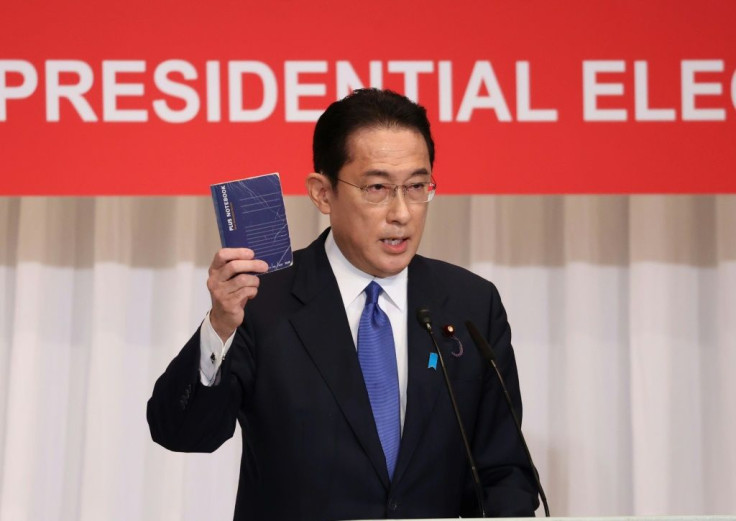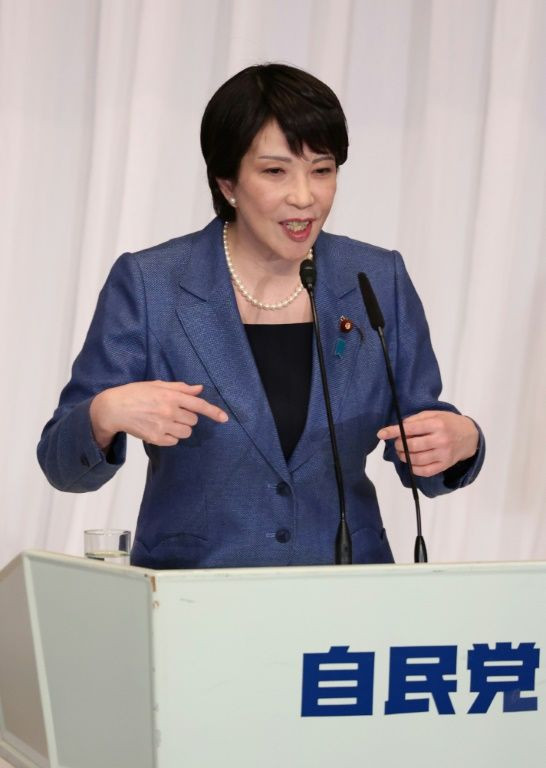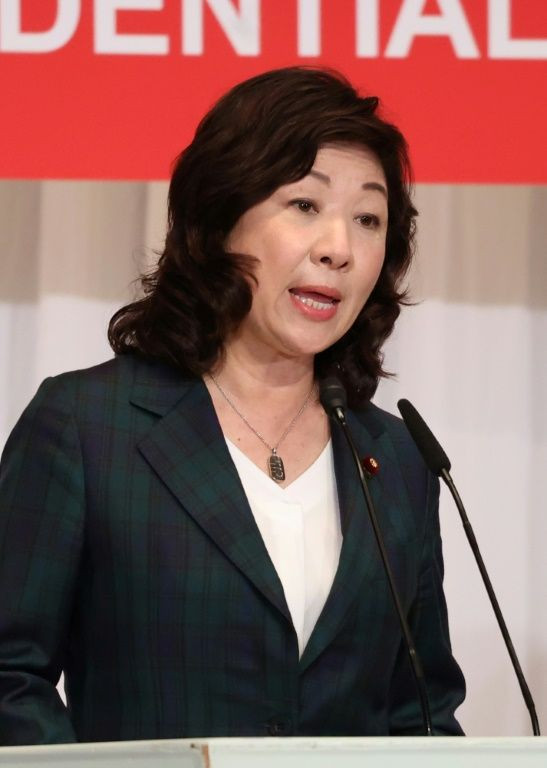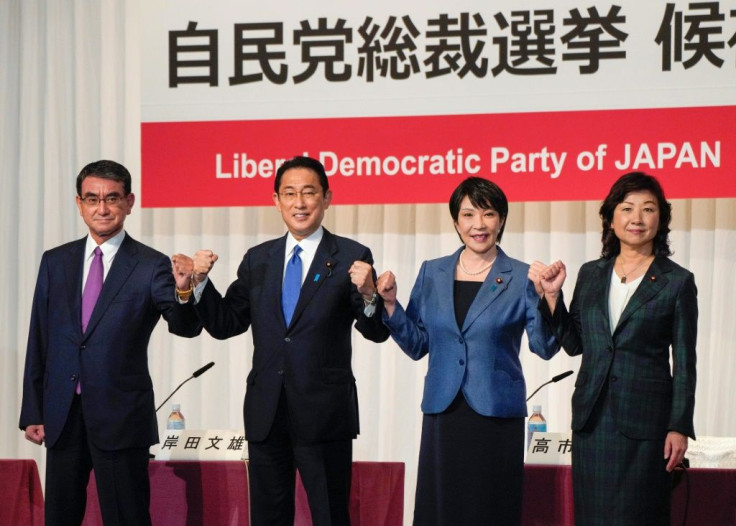From Twitter Star To Thatcher Fan: Japan's PM Candidates
An outspoken vaccine chief and a right-wing nationalist are among the candidates vying to lead Japan's ruling party and become the country's next prime minister.
The Liberal Democratic Party (LDP) votes Wednesday on a replacement for Prime Minister Yoshihide Suga to take them into general elections which the party is expected to win.
Here is a look at the candidates:

Vaccine chief Taro Kono is one of Japan's most recognisable politicians and considered a front-runner in the race. He is backed by Suga and tops public opinion polls.

As minister for administrative reform, he has battled to modernise bureaucracy by scrapping ink stamps and fax machines.
At 58, Kono is the youngest candidate and is seen as part of the party's new generation, with a liberal outlook and free-flowing communication style.
His Japanese Twitter account has more than two million followers, and he engages directly with people on everything from policy to his love of durian.
But he has also been criticised for blocking people on Twitter and accused of bullying bureaucrats.

A former defence and foreign minister, he is a political liberal who backs legalising same-sex marriage, and has pledged to slash bureaucracy and improve digitalisation.
He is also a green energy advocate who says it is "not a pipedream" to power Japan with 100 percent renewable energy.

Fumio Kishida is considered the other top candidate and benefits from heading a large faction known for its dovish stance.
An ex-foreign minister and former LDP policy chief, he has angled his campaign as a corrective to the current government, saying he believes Japan's public wants a "politics of generosity".
The 64-year-old has touted his listening skills and invited voters to leave him messages in a suggestion box, while pledging fresh pandemic financial support and a new agency for health crises.

Kishida says he wants to "distribute" wealth to tackle growing income inequality, though he has said this would not involve tax hikes, calling instead for stronger growth.
His family is from Hiroshima and he helped bring then-US president Barack Obama to the city for a historic visit in 2016. He has said abolishing nuclear weapons is "my life's work".
Sanae Takaichi is one of Japan's few prominent woman politicians and has made no secret of her nationalist views.
She has described Britain's "Iron Lady" Margaret Thatcher as a role model and said she has no problem sticking with unpopular policies if she thinks they are right.
A divisive figure, the 60-year-old strongly opposes apologies for Japan's wartime past and supports the current ban on married couples having different surnames.
Takaichi is a regular visitor to Tokyo's controversial Yasukuni shrine, which honours war dead including war criminals and is a flashpoint in relations with South Korea and China.
She is also a heavy metal fan and a motorbike enthusiast, though she reportedly gave up riding after being elected for fear that an accident could affect her work.
Seiko Noda has often been described as most likely to become Japan's first woman prime minister, but she waited until the day before campaigning began to confirm her run.
A former women's empowerment and gender equality minister, Noda said her campaign would be about creating conservative politics that support all parts of society.
She has pledged to aim for women to make up half her cabinet if elected.
The 61-year-old has long pushed for greater gender equality, including allowing married couples to have separate surnames.
She gave birth aged 50 after undergoing fertility treatment involving a US egg donor, and has pushed to make fertility treatment more accessible in Japan.
In the past, her bids for the party leadership have met with a lukewarm response and she is seen as a long-shot this time around.
© Copyright AFP {{Year}}. All rights reserved.





















